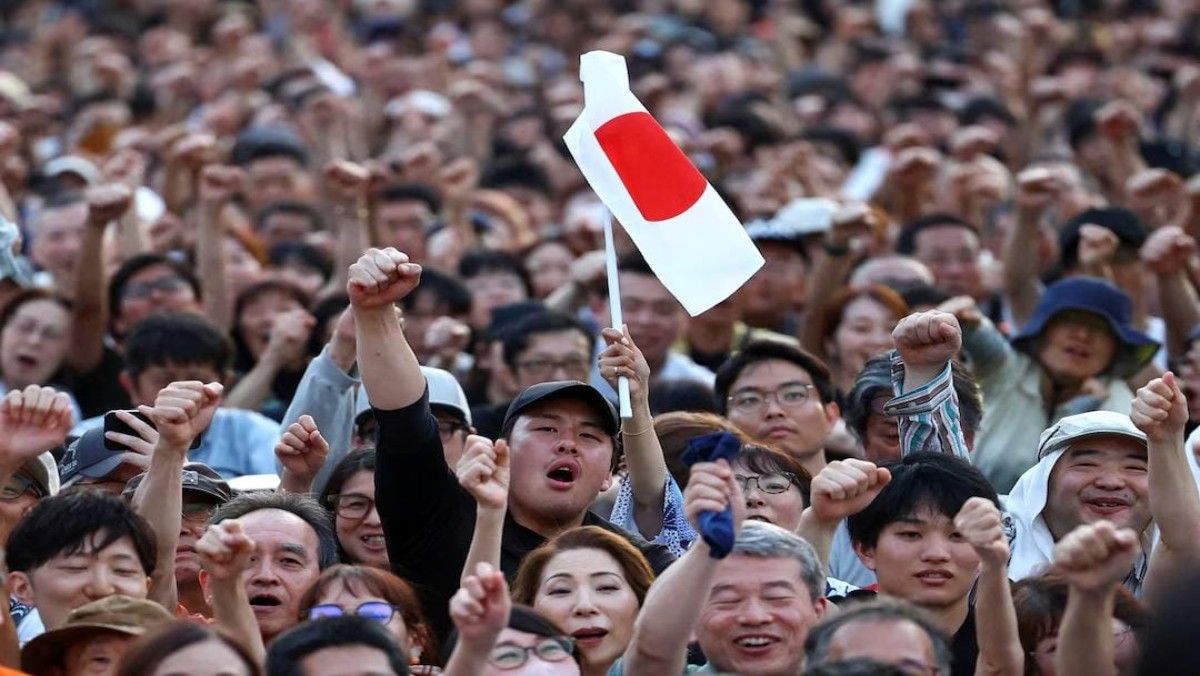Japan’s latest upper-house election felt less like routine business than the season finale of an overlong anime: exhausted heroes, new villains, and a cliffhanger that hints at darker plotlines ahead. A clutch of insurgent parties—brandishing nationalism, nostalgia, and no-nonsense slogans—has jolted the political establishment awake.
A Right-Turn Remix
The vote handed sizeable gains to three right-leaning groups. Nippon Ishin no Kai, a market-liberal outfit born in Osaka, doubled its seats to 12, promising smaller government and muscular constitutional revision. The Democratic Party for the People (DPFP) added 13 to reach 17, mixing tax cuts with hawkish talk on China. Most eye-catching was Sanseito, a YouTube-forged populist movement that leapt from one seat to 15 on a “Japanese First” platform of tougher immigration rules, vaccine scepticism, and folky moralism.
Humbling the Hegemon
These advances mattered because they removed the ruling Liberal Democratic Party’s majority in the House of Councillors, leaving the LDP and its junior ally Kōmeitō short in both chambers for the first time since the party’s 1955 founding. The setback underlines a deeper malaise: the LDP is bleeding the conservative base it once took for granted, as younger right-wing voters defect to brasher alternatives.
Immigration: A Plot Device
Fear of outsiders fuels the new right. Foreign residents now top 3.7 million, up 11 per cent in a year, and nearly one in ten 20-something workers is foreign-born. Though corporate Japan pleads for more hands, Sanseito’s rallies crackle with allegations of “silent invasion”. Surveys show economic and security worries rather than pure xenophobia shape anti-immigrant votes. The LDP, caught between business lobbies and nationalist voters, waffles; its manifesto barely mentions immigration. In politics, silence reads like surrender.
Youth Versus Silver Centrism
Age, too, is reshaping the script. Polls have long shown voters under 40 tilting right while their elders hug the pragmatic centre. That moderation may slow a wholesale lurch to the hard right, yet it cannot mask a generational estrangement: disenchanted youth no longer see the LDP as a guardian of order, only of stagnation.
Impact Shorts
More ShortsPolicy in the Slow Lane
Gridlock now beckons. Any bill must woo fickle newcomers or the fractious opposition, consigning reform to a Diet crawl. For a country with public debt at 263 per cent of GDP and growth barely above zero, legislative drift is perilous. Pensions gulp 25 yen of every 100 the state spends; the working-age population shrinks by half a million a year. Japan needs sweeping labour, tax, and welfare surgery. Instead, it gets coalition poker and constitutional skirmishes.
Foreign Gusts Fan the Flames
Populists thrive not only on domestic ennui. The process of the US-Japan deal negotiations were seen as humiliating. Meanwhile, Donald Trump’s “America First” rhetoric resurrects an old anxiety: the US nuclear umbrella may have holes. Former admirals grumble that no American president would “trade New York for Tokyo”—an indication for building a nuclear arsenal of Japan’s own. Sanseito’s leaders openly debate that once-taboo option. In their telling, tariffs, Chinese threatening hegemony and tension, and North Korea’s missiles form one narrative: allies unreliable, sovereignty unfinished.
All this feeds an intoxicating brew of grievance and grandeur. The danger is that blockages at the centre leave the loudest fringes to frame the debate, turning policy into theatre and pragmatism into a punching bag.
Conclusion
Anime rarely ends where it begins. Having tired of one invincible hero, audiences turn to fresh protagonists. Japan’s voters, likewise, have grown restless with the LDP’s half-hearted sequels. The question is whether the new cast writes a constructive storyline or opts for apocalyptic fan fiction. For Asia—and the world—a Japan willing to say “no” is coming into view. Whether it says “yes” to the hard graft of reform will decide if this saga becomes a revival classic or merely another cartoon cliff-hanger.
The writer is a senior journalist with expertise in defence. Views expressed are personal and do not necessarily reflect those of Firstpost.
)